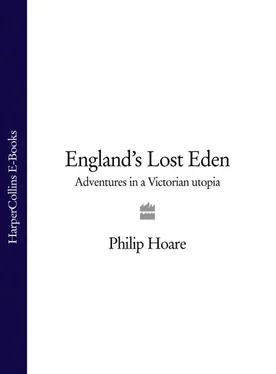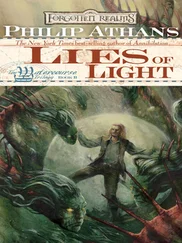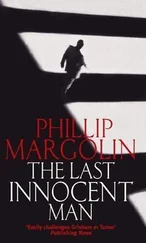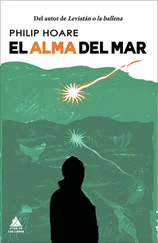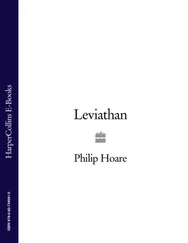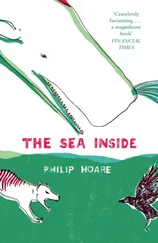Mary Ann returned to her duties, fired with an undeclared determination; her heart must have been bursting to speak of it, but she told her fellow chapel goers only that they must observe holy lives. Five hundred years previously, Julian of Norwich had written of her own revelation:
When I was 30 years old and a half, God sent me a sickness, in which I lay three days and three nights … my sight began to fail, and it was all dark about me, save in the image of the Cross, whereupon I beheld a common light … Suddenly my pain was taken from me, and I was as whole as ever I was. Then came … to my mind that I should desire the second wound of our Lord’s gracious gift. In this moment I saw the red blood trickle down hot and freshly and right plenteous, as it were in the time of His Passion when the Garland of Thorns was pressed on His blessed head. And suddenly the Trinity fulfilled my heart most of joy.
Now Mary Ann received a second vision, although, just as the gospels diversify in their accounts, so her story relies on different writers and her own fluctuating pronouncements; and where one claims six years between her visions, another records just days before the Spirit appeared in the form of a fiery dove commanding her,
I have called thee to declare my immediate coming, and it is now the close of this dispensation; a new era is opening on the world, and thou art to be the Messenger .
From this point, it seemed, Mary Ann’s life was determined as parable, to be replayed in situations which would reflect biblical events. The heaven-borne message echoed John’s baptism of Christ, when ‘the Holy Spirit descended upon him in bodily form, as a dove, and a voice came from heaven, “Thou art my beloved Son; with thee I am well pleased”’. Yet still she said nothing: Mary Ann lost herself in her work, afraid that a public declaration would subject her to ‘odium and opposition’. But the visions continued, more potent than ever. She was taken ‘into a realm far above the earth; and she ascended out of it, and beheld a vista of ages; and then she looked at Christ, whose glory illuminated her, and she discovered that she was in a glorified ethereal body’. In this astral experience, the Lord appeared ‘in the form of a man’. This was no dream: like Moses and Elijah appearing to Jesus, the vision was as real as she could say. Now the Bible was opened to her, and its written word revealed ‘all its truth concerning the life of the spirit within the tabernacle of the body’.
Mary Ann’s eyes had been opened, just as the scales had fallen from St Paul’s eyes. And as with millenarian prophets of the past, her discovery resulted in a literal interpretation of St John’s Revelations and its apocalyptic predictions for the end of time. Her visions told her that the Second Coming would happen in her lifetime, and that she was its Messenger, ‘to declare an end of sin, and a judgement; and, further, that if she yielded and obeyed, she should not see death … and that as a witness to her call and work, the outpouring of the Holy Ghost should be to those who believed; that they should speak with tongues, and do marvellous works; which would be the seal of her messengership’. It was a mirror of St Paul’s mission, and in order to fulfil her duty, she must leave her home and family ‘and go forth into the streets, declaring the message; and … all who believed must be prepared to do the same’.
The cumulative weight of these supernatural events proved too much for a woman’s body already weakened by miscarriage. For six weeks Mary Ann was stricken by a paralysis which twisted her mouth, as if in punishment for her ill-tempered tongue, a God-sent witch’s scold. This physical ultimatum, in her own account, also caused blindness in one eye and seized her body – perhaps the result of a minor stroke. She was faced with a choice: she could either disregard the visions and remain in this helpless state, or obey her holy orders. And so she told the Lord that He must do with her as He would. As a result of this epiphany – in its original meaning, the manifestation of a god – she immediately recovered. But later, Mary Ann would claim that the last of her visions left her with a yet more extraordinary legacy. At Christmas 1864 she received the sign for which Julian had prayed. The stigmata appeared on her hands, feet and side, erupting in imitation of Christ’s crucified body. Like some sacred statue brought to life, Mary Ann’s flesh itself bore testament to her Saviour’s sufferings. It was as if these wounds were symptoms of her death, as though she had died and been reborn without sin.
Was she a sinful woman, this sometime purveyor of illicit liquor, as yet unmarried in the eyes of the Church, now an evangelist? Records do not tell us, although the guilt Mary Ann may have felt for her children – born dead and out of wedlock – may indicate something for which she needed to atone: a recovered memory, perhaps of abuse within the crowded childhood home. Nor was she beautiful; her face was no lure to lust, and what was interbred emerged in sharp features set awry by harsh experience. Yet she was tall and imposing, with a magnetic stare; as if, in compensation for her lack of beauty, she relied on other means to command attention. There was a sensuality in the way her hair curled in dark locks over her shoulders, although her physical stance spoke against desire and her wide, thin lips bore the memory of paralysis. Her gaunt frame rejected consumption and sexuality in favour of asceticism and spirituality; a visionary aspiration in retreat from the world and its demands. In retrospect, it seems Mary Ann may have suffered some kind of dietary disorder; certainly her body was unnaturally slender. ‘The only emaciated being we saw was the prophetess herself’, one witness would note, ‘and her desperate enthusiasm would burn the flesh from any flame.’
Perhaps her passion fed on her body, exchanging the one for the other. In the process, her resolve was stiffened, as if that heaven-sent rictus were a physical reaction to or a prevention of sin, tensing her body against evil. And if she had been a sinful woman, then her sins were forgiven. Her manner, once inflexible and intolerant, was now gentle and generous. Seeing this, her newly married husband gave up his initial opposition – an acquiescence he would maintain throughout all that was to come. Mary Ann explained that having experienced the ‘perfect presence of Jesus’, it was impossible to remain with him, ‘for her spirit being once set free to enter the paradisiacal state, it was not lawful to enter the state of matrimony again’. Instead she became a bride of Christ, and returned to her chapel – only to find that the congregation refused to listen.
It is easy to imagine their reaction, faced with this woman whose duty lay at home with her children, yet who chose to lecture them on their sins. Mary Ann burned to communicate the wonder of what she had seen, and rejection merely made the fire glow brighter. Shortly after, she saw a crowd listening to a male preacher on a street corner. Someone asked her to speak, and soon, like Wesley, she had her own audience in the open air. But for Mary Ann there was something more to her commission than human history, and she was reminded of it every day by her hidden, holy scars, as if God’s words were written on her skin.
We all reinvent ourselves. We conflate memory and fact, and reinterpret the pleasure and pain of the past to suit the present and form our future. Mary Ann too was convinced of her story, and felt the need to share it – a desire only heightened by the obstacles placed in its way, not least that of her sex. Yet being born a woman was not necessarily a bar to her calling: not only were there precedents for female preachers among the Methodists and the Quakers, but her experience – the loss of her children, her lowly origins – made her message more immediate. It was said that her ‘thrilling, and often overpowering speeches had a vivid effect on sympathetic lady hearers, for she observed proprieties of behaviour, and there was nothing coarse or vulgar about her’. And like other female mystics, from Julian of Norwich and Margery Kempe, to Hildegard of Bingen, Teresa of Avila and Joan of Arc, she cited higher authority; like the Maid of Orleans’ armour, her visions were a defence against male prejudice. Who could doubt the Word of God, even if it came from a farm labourer’s daughter?
Читать дальше
